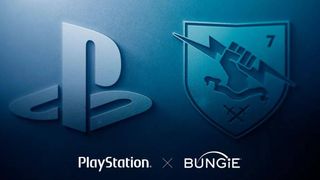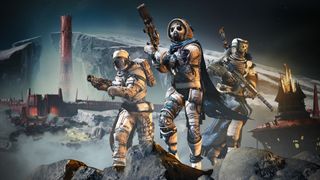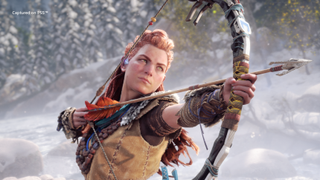Why Sony’s Bungie acquisition shouldn’t worry Microsoft
Opinion: it’s good news for Sony, but Xbox fans needn’t worry

Another week, another major acquisition in the video game industry. This time it’s Bungie that’s been bought out, with Sony announcing that it had acquired the Destiny 2 developer for $3.6 billion on January 31.
Sony’s buyout of Bungie could be seen as an immediate response to Microsoft’s seismic takeover of Activision Blizzard (which is now being investigated by the Federal Trade Commission). But it’s actually a more complicated deal, and one that’s unlikely to affect Xbox gamers directly – if at all. It is, however, a deal that makes logical sense for Sony, and for PlayStation as a whole.
The key point to keep in mind regarding Sony’s Bungie acquisition is that the Destiny 2 developer is set to remain completely independent. The studio has made it clear that Destiny 2, including any future in-game content or new IP created by Bungie, will not be exclusive to PlayStation consoles. At the very least, it will be down to Bungie’s discretion where its future games and content end up, not Sony.
In an FAQ on Bungie’s website, the company responded to questions about whether future games in development will become PlayStation exclusive. “No,” the statement reads. “We want the worlds we are creating to extend to anywhere people play games. We will continue to be self-published, creatively independent, and we will continue to drive one, unified Bungie community.”
Destiny calls

That’s pretty clear-cut, then, and it means that Destiny 2 won’t suddenly become a PlayStation exclusive, nor will Sony be ordering Bungie to get to work on a Halo-killer anytime soon. We also won’t see any of Bungie’s games siphoned off onto Sony’s subscription services. Bungie will continue to operate independently, just like before the acquisition.
That’s a very different situation from Sony’s recent acquisitions of Returnal developer Housemarque, remake masters Bluepoint Games, Playroom maker Firesprite, PC port specialists Nixxes Software, and God of War support studio Valkyrie Entertainment. These studios are now tasked with developing exclusive content for PlayStation systems (and potentially PC), which won’t be available anywhere else.
And that fundamentally means that Sony’s Bungie buyout isn’t the same as Microsoft’s pending acquisition of Activision Blizzard. We already know that the Redmond-based company is planning to add as many Activision Blizzard titles as it can to Xbox Game Pass in the future.
Get daily insight, inspiration and deals in your inbox
Get the hottest deals available in your inbox plus news, reviews, opinion, analysis and more from the TechRadar team.
Microsoft’s recent Bethesda acquisition has also shown that any acquired studios will slowly begin to make exclusive games for Xbox and PC. Starfield, Redfall, and The Elder Scrolls 6 are no longer coming to PlayStation, for example, and while Call of Duty will remain on PS5 for the foreseeable future, there’s no guarantee that will always be the case.
A long-term approach

The impact of Sony’s Bungie acquisition won’t be felt directly by Xbox gamers, then, but rather Sony is banking on Bungie’s unique expertize to help it develop new games in an area where it’s arguably lagged behind: games as a service (GaaS), which are also known as live-service games. We now know it's planning to release 10 live-service games before 2026.
Microsoft already has several successful GaaS titles like Sea of Thieves, State of Decay 2, Halo Infinite, Forza Horizon 5 in its portfolio, which receive frequent updates and have long life cycles.
Sony, meanwhile, has established itself as the leader of single-player narrative-driven titles, like The Last of Us 2 and Spider-Man: Miles Morales. These games can often be completed after a few hours, and offer little long-term longevity other than the promise of future downloadable content.
In buying Bungie, Sony now has a developer that not only knows how to create live-service games but is also responsible for creating one of the most popular GaaS titles to date. That’s a huge positive for Sony, and is an investment that will come to fruition in the years to come.
Gestation period

Sony’s Bungie deal is odd in many respects, but ultimately proves that Sony is confident in its existing studios. It doesn’t need to make Destiny 2 and future Bungie games exclusive to its platform to entice more users; games like Gran Turismo 7, Horizon Forbidden West, and God of War: Ragnarok already accomplish that. Instead, Sony is banking on adding another feather to its already impressive plumage by creating compelling live-service games using its existing or new IP.
Microsoft needn’t worry about Sony’s Bungie acquisition, then, but at the same time it’ll have some new competition in a space that was previously only occupied by other third-party publishers. And competition is fundamentally always a good thing for gamers.
- PS5 vs Xbox Series X: which is right for you?
Adam was formerly TRG's Hardware Editor. A law graduate with an exceptional track record in content creation and online engagement, Adam has penned scintillating copy for various technology sites and also established his very own award-nominated video games website. He’s previously worked at Nintendo of Europe as a Content Marketing Editor and once played Halo 5: Guardians for over 51 hours for charity. He is now an editor at The Shortcut.

